Pope to Portuguese authorities: WYD offers a chance to build a more peaceful world
Pope Francis reflects on the conflicts, injustices and lack of hope that are crippling the world today and on how the Church, whose "face has been marred by scandals," is called to find new ways to go forward, fueling hope for the future and “sailing boldly into the sea of evangelization and of mission.”
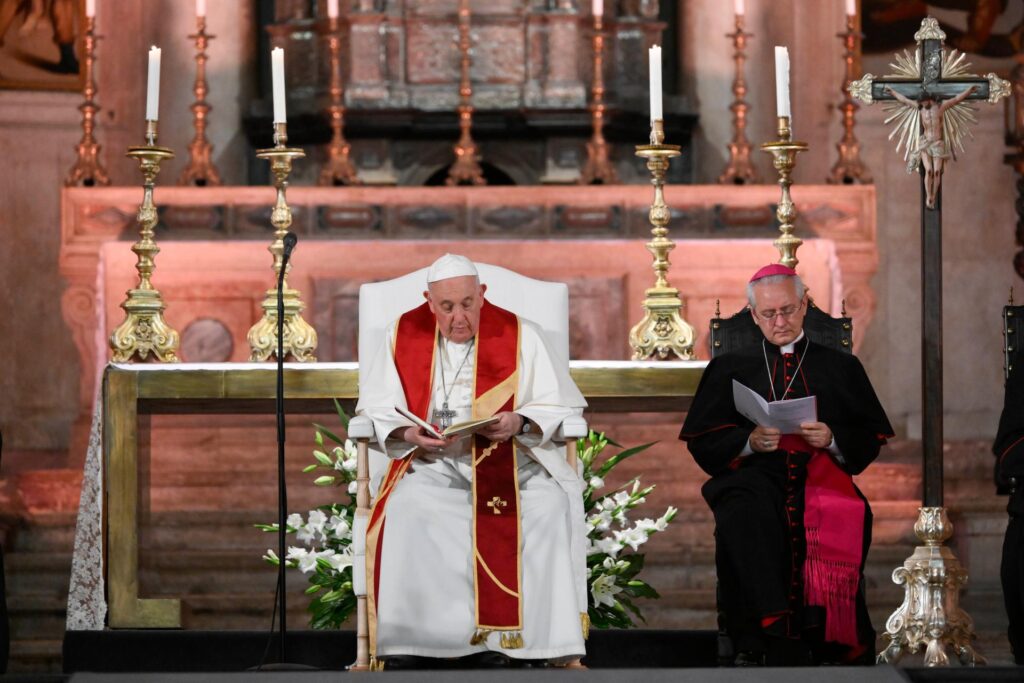
Praying Vespers in the 16th century Jeronimos Monastery in Lisbon on the first day of his visit to Portugal for World Youth Day 2023, Pope Francis urged the clergy and religious to proclaim the saving message of the Gospel with renewed impetus in a world in which there is so much darkness.
Addressing Portuguese Bishops, Priests, Deacons, Consecrated Persons, Seminarians and Pastoral Workers gathered in the ancient monastery on Wednesday evening, the Pope reflected on the readings of the Vespers that tell of the Lord’s saving grace and of how Jesus changed the lives of his disciples by bringing God’s closeness into the places and situations in which “people live, work and hope.”
Find new ways to follow the Lord
Acknowledging the weariness that can burden men and women of the Church in times that are “buffeted by social and cultural changes and increasingly marked by secularism, indifference to God and growing detachment from the practice of the faith,” the Pope invited them “to bring their struggles and tears to the Lord” and with open hearts find new ways to follow Him.
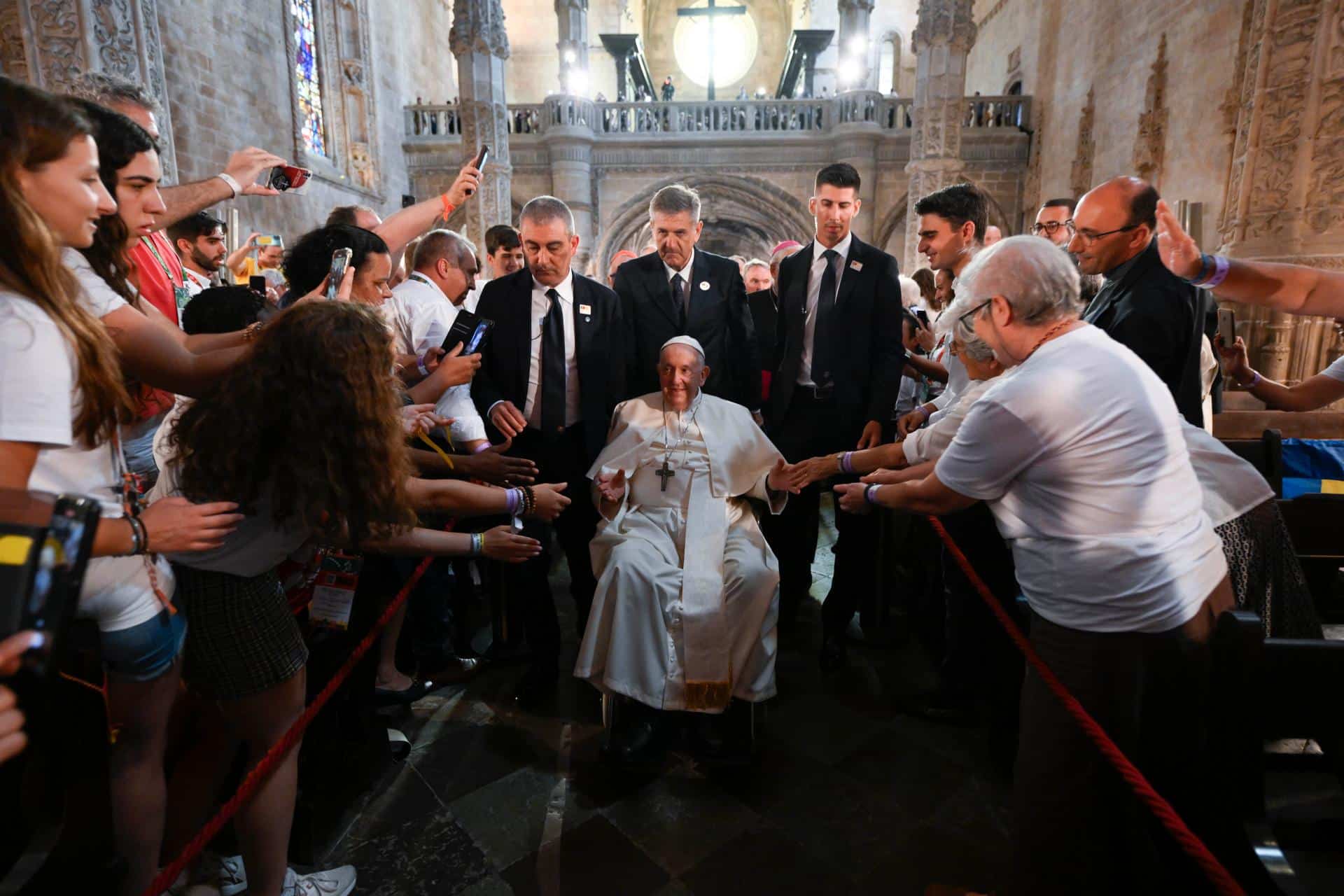 That weariness, the Holy Father said, “is often accentuated by the disappointment and anger with which some people view the Church, at times due to our poor witness and the scandals that have marred her face and call us to a humble and ongoing purification, starting with the anguished cry of the victims, who must always be accepted and listened to.”
That weariness, the Holy Father said, “is often accentuated by the disappointment and anger with which some people view the Church, at times due to our poor witness and the scandals that have marred her face and call us to a humble and ongoing purification, starting with the anguished cry of the victims, who must always be accepted and listened to.”
“Whenever we feel discouraged, we can feel tempted to leave the boat and become entangled in the nets of resignation and pessimism,” the Pope said, Jesus comes to us “amid our feelings of solitude and our crises, in order to help us begin anew.”
No to the ‘administrators of the sacred’
Underscoring the relevance of this invitation, the Pope noted that when we feel discouragement and “retire” from apostolic zeal, “we risk becoming mere “administrators of the sacred: “It is very sad when a person who has consecrated his life to God becomes an “official”, a mere administrator of things. It is very sad,” and he appealed to those who may be bored and are living the mission as “a kind of job” to make room for “that repeated call of Jesus” and allow ourselves to be seduced by it.
Dear brothers and sisters, Pope Francis said: ”We are surely living in difficult times, but the Lord is asking this Church: ‘Do you want to leave the boat and plunge into disillusion, or will you let me enter and allow the newness of my words once more to take the helm? Do you want only to preserve the past which lies behind you, or do you want once again to lower the nets with enthusiasm for the catch?’”
“The Lord” he said, “is asking us to revive our “restless” enthusiasm for the spread of the Gospel,” and reiterating the need for a renewed missionary zeal, he asked his “Dear Portuguese friends” to set out from the shore, “not to conquer the world but to make it exult in the comforting joy of the Gospel.”
“This is not the time to stop and give up, to drag the boat to shore or to look back. We must not take flight from the present out of fear, or take refuge in forms and practices of the past. Now is the God-given time of grace to sail boldly into the sea of evangelization and of mission,” he added.
Thus, Pope Francis had three indications which, he said, are inspired by the Gospel.
Put out into the deep, share the journey, evangelize
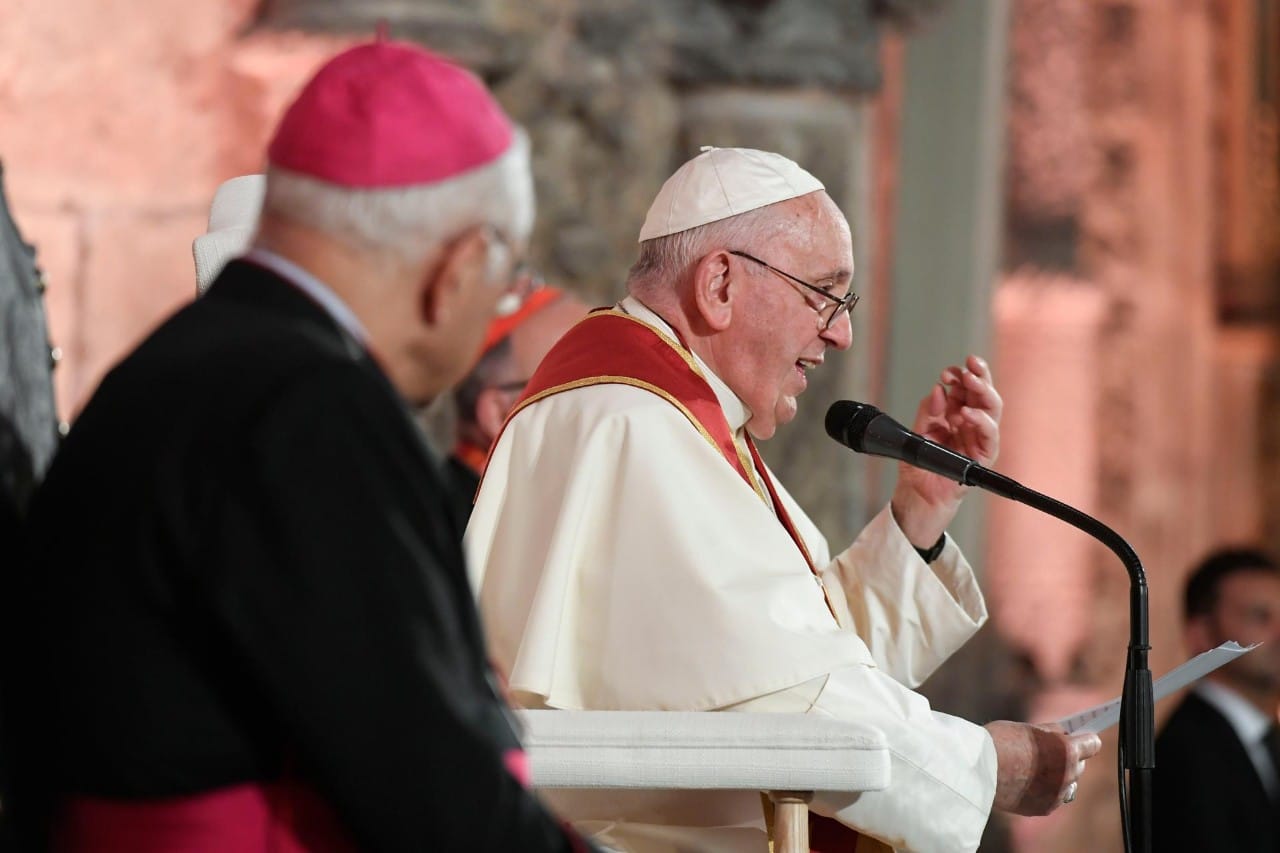 “First,” he said, “Put out into the deep.” To lower the nets anew, he explained, it is necessary to leave disappointments and inertia, and “pass from defeatism to faith.”
“First,” he said, “Put out into the deep.” To lower the nets anew, he explained, it is necessary to leave disappointments and inertia, and “pass from defeatism to faith.”
“A second choice,” he continued, is “to work together in offering pastoral care.”
This indication allowed the Pope to underscore, yet again, his belief that the Church is synodal: “She is communion, mutual assistance and shared journey.”
That, he explained, is the aim of the current Synod, which will have its first general assembly in October.
“On the boat of the Church, there has to be room for everyone: all the baptized are called on board to lower the nets, becoming personally involved in the preaching of the Gospel.”
Acknowledging that this “is a great challenge,” he said that it is something to be done “without worldliness, yet not without the world.”
And speaking off-the-cuff to highlight this crucial concept, the Pope said “clericalism is one of the most serious evils that can happen to the Church,” and he urged those present to overcome this risk “without ideologies, without worldliness.”
“In the Church, we help each other, we support one another and we feel ourselves called to spread a climate of constructive fraternity beyond our own walls,” he said.
“The third choice,” he said, is to become fishers of men.
Noting that there is so much darkness in today’s society, Pope Francis lamented the fact that “We seem to have lost a sense of enthusiasm, the courage to dream, the strength to confront challenges and to be confident about the future.”
He described the course of humanity as one that sails “amid doubts and economic uncertainty, an impoverishment of social friendship, and lack of hope.”
“As Church, we are entrusted with the task of putting out into the waters of this sea and casting the nets of the Gospel, not pointing fingers but bringing to the men and women of our time an offer of new life, the life of Jesus,” he continued.
‘Bring the openness of the Gospel to today’s multicultural society’
We are called, the Holy Father said, “to bring the openness of the Gospel to a multicultural society; to bring the closeness of the Father to situations of growing uncertainty and poverty, especially among young people. To bring the love of Christ wherever families are fragile and relationships wounded. To transmit the joy of the Spirit where discouragement and fatalism reign.”
“Dear brothers and sisters,” Pope Francis concluded, spelling out the fact that his invitation is directed to all – lay people, religious men and women, priests, bishops, everyone – “do not be afraid, cast your nets (…) do not accuse others but feel the invitation of Jesus” and don’t turn the Church into a customs house.
It’s an invitation, he said, to everyone: “To the righteous, to those who are well off, to those who are happily married and to everyone else” because the Church is made of everyone, “righteous and sinners, good and bad, everyone, everyone, everyone. And then the Lord help us to sort that out!”
Related
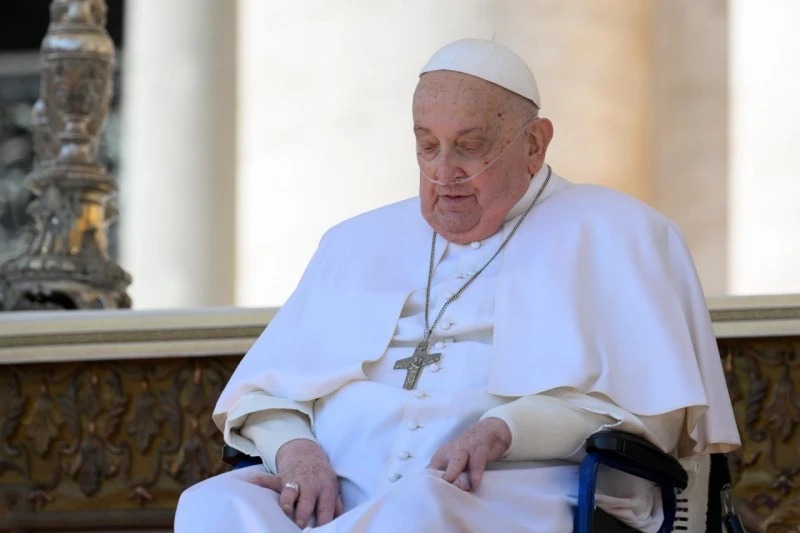
The Pope: In convalescence, I feel the “finger of God” and experience his loving caress
Exaudi Staff
06 April, 2025
2 min
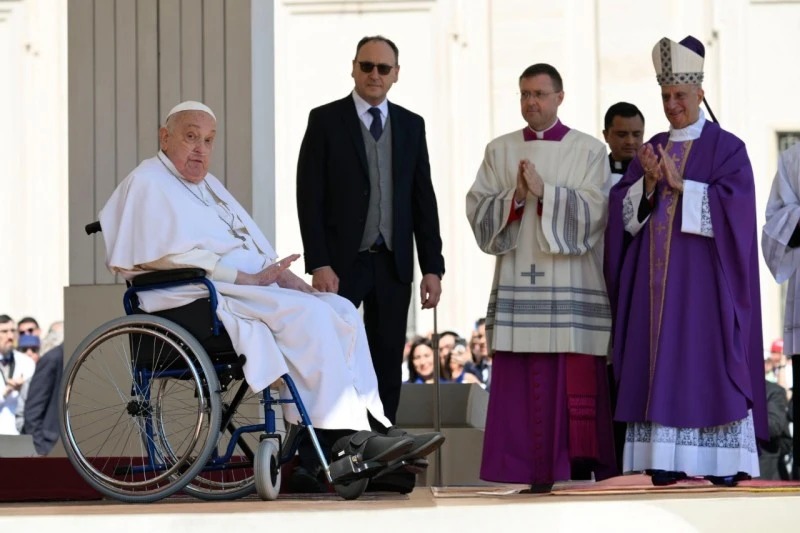
The experience of illness, a school in which we learn every day to love and to allow ourselves to be loved
Exaudi Staff
06 April, 2025
6 min

Francis is gradually improving: signs of recovery at the Vatican
Exaudi Staff
04 April, 2025
1 min
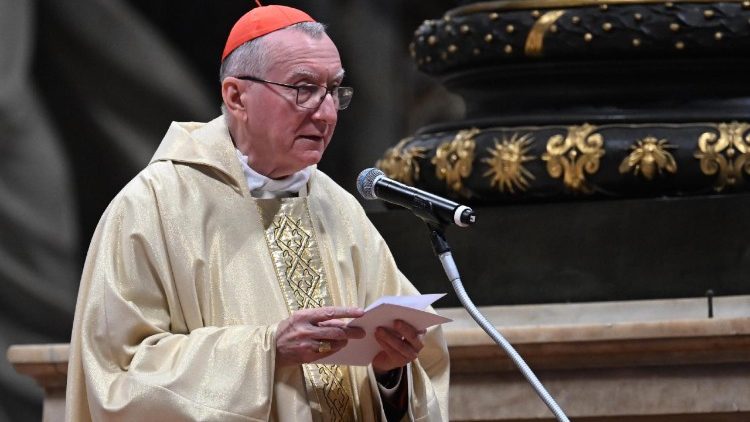
John Paul II: The Tireless Pilgrim Who Continues to Inspire the World
Exaudi Staff
03 April, 2025
2 min
 (EN)
(EN)
 (ES)
(ES)
 (IT)
(IT)

